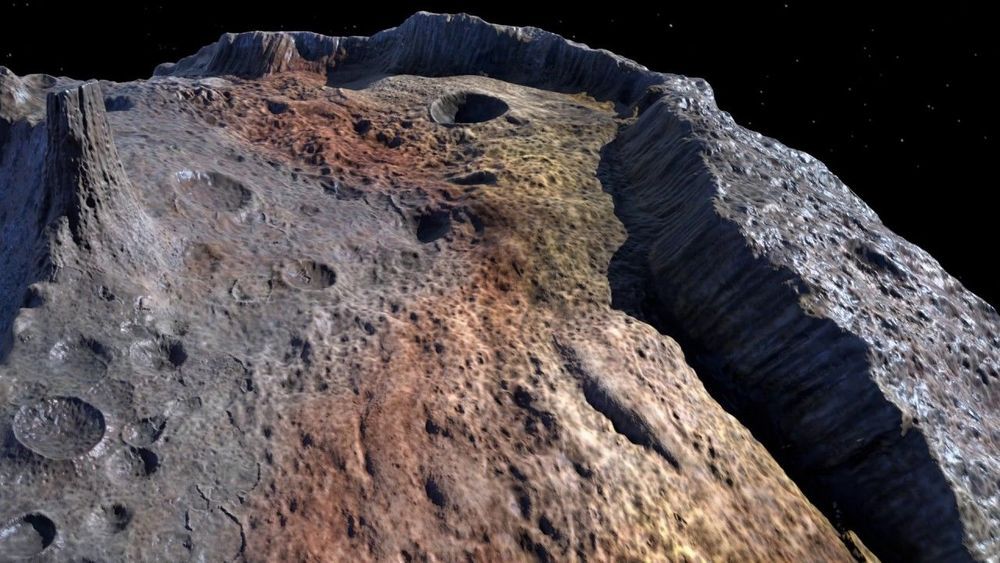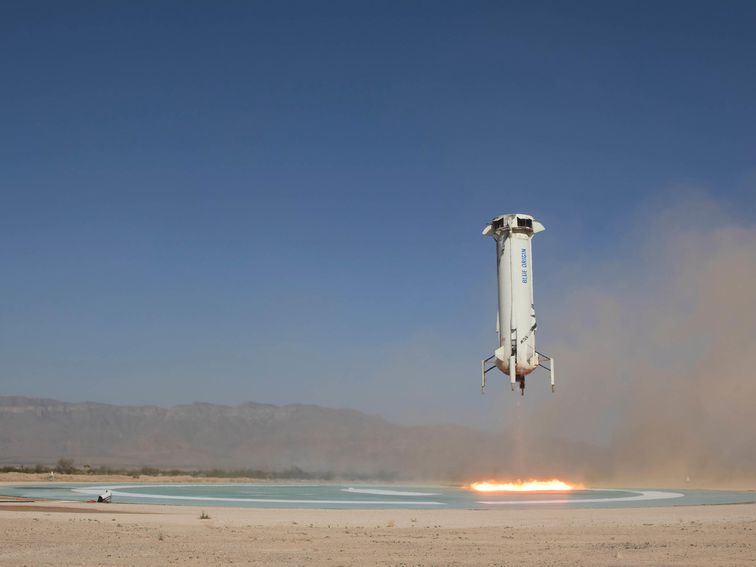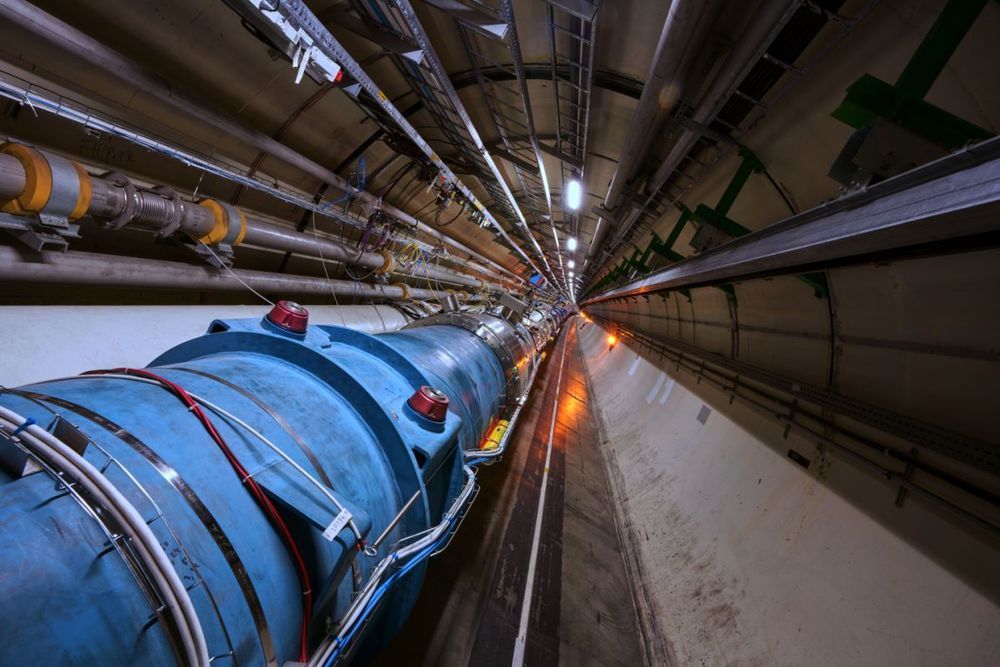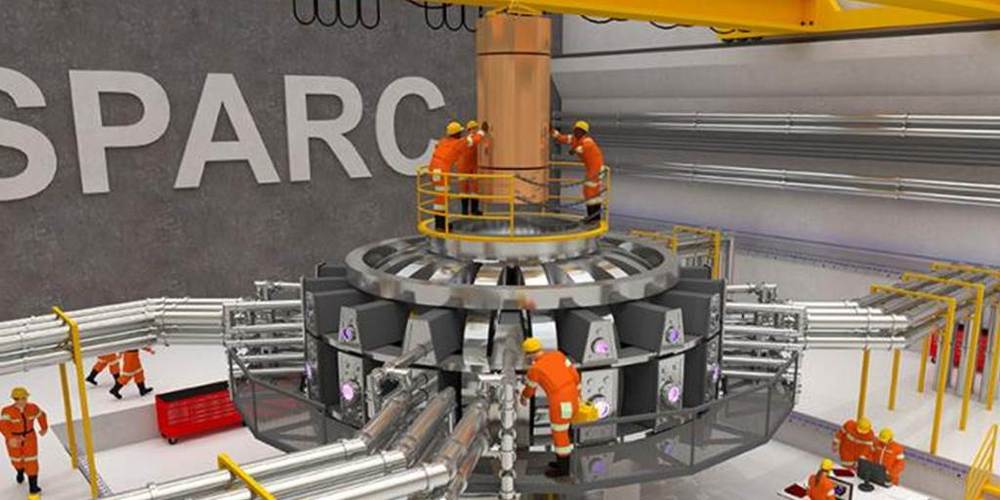Page 8897
Apr 27, 2019
Blue Origin’s cryptic tweet hints at a new adventure
Posted by Genevieve Klien in category: space travel
Apr 27, 2019
Physicists create Star Trek-style holograms
Posted by Genevieve Klien in categories: holograms, physics, virtual reality
Star Trek’s famous holodeck is a virtual reality stage that simulates any object in 3D as if they were real. However, 3D holographic projection has never been realized. A team of scientists from Bilkent University, Turkey, has now demonstrated the first realistic 3D holograms that can be viewed from any angle.
Apr 27, 2019
The World’s Largest Atom Smasher Could Be Tweaked to Hunt ‘Dark World’ Particles
Posted by Genevieve Klien in categories: cosmology, particle physics
When it reopens in 2021, the Large Hadron collider should be able to detect rare particles with possible links to the world of dark matter and energy.
Apr 27, 2019
To Prevent the Apocalypse, MIT Says to Study “Machine Behaviour”
Posted by Genevieve Klien in categories: futurism, robotics/AI
Apr 27, 2019
NASA Preps Mission to Most Interesting Asteroid in Our Solar System
Posted by Shailesh Prasad in categories: asteroid/comet impacts, existential risks

In 2022, if all goes well, NASA will launch Psyche, a space probe intended to visit the asteroid of the same name (16 Psyche is its formal designation). It’s a particularly exciting mission given Psyche’s unique nature and highly unusual composition.
The asteroid belt is composed of three types of asteroid: C-type (carbonaceous, ~75 percent of all asteroids), S-type (silicate-rich, ~17 percent of asteroids) and M-type (metal-rich), which are roughly 10 percent of the total population. The numbers, in this case, don’t add up to 100 percent because we aren’t sure of the exact ratios. 16 Psyche is an M-type asteroid made of iron-nickel. What makes it unusual is that it’s believed to be the now-exposed core of a protoplanet. It’s also estimated to be worth $10,000 quadrillion dollars, if anybody has a towing hitch handy.
Continue reading “NASA Preps Mission to Most Interesting Asteroid in Our Solar System” »
Apr 27, 2019
5 AI Breakthroughs We’ll Likely See in the Next 5 Years
Posted by Shailesh Prasad in categories: climatology, robotics/AI, solar power, sustainability
Just as the modern computer transformed our relationship with bits and information, AI will redefine and revolutionize our relationship with molecules and materials. AI is currently being used to discover new materials for clean-tech innovations, such as solar panels, batteries, and devices that can now conduct artificial photosynthesis.
Today, it takes about 15 to 20 years to create a single new material, according to industry experts. But as AI design systems skyrocket in capacity, these will vastly accelerate the materials discovery process, allowing us to address pressing issues like climate change at record rates. Companies like Kebotix are already on their way to streamlining the creation of chemistries and materials at the click of a button.
Atomically precise manufacturing will enable us to produce the previously unimaginable.
Continue reading “5 AI Breakthroughs We’ll Likely See in the Next 5 Years” »
Apr 27, 2019
Scientist: “Alien Life Now Seems Inevitable and Possibly Imminent”
Posted by Shailesh Prasad in categories: 3D printing, alien life, bioprinting
The cosmos are filled with roughly Earth-sized exoplanets. Various moons, comets, and planets have stores of water, organic molecules, and amino acids like those that make up life on Earth.
Cathal O’Donnell, a 3D bioprinting researcher at St. Vincent’s Hospital in Melbournethose odds — he argues in The Conversation that the abundance of potentially habitable worlds out there makes the discovery of extraterrestrial life “inevitable and possibly imminent.”
Apr 27, 2019
What happened almost exactly 400 years ago that has produced a tremendous “Butterfly Effect” on us modern humans?
Posted by Alex Vikoulov in category: futurism
Apr 27, 2019
Fusion power start-ups go small in effort to bring commercial reactors to life
Posted by Genevieve Klien in category: space travel
After decades of research and development, fusion may be poised for its “SpaceX moment.”
A visualization of SPARC, a compact, experimental fusion facility now under construction on MIT’s campus. Ken Filar / PSFC Research Affiliate.
















